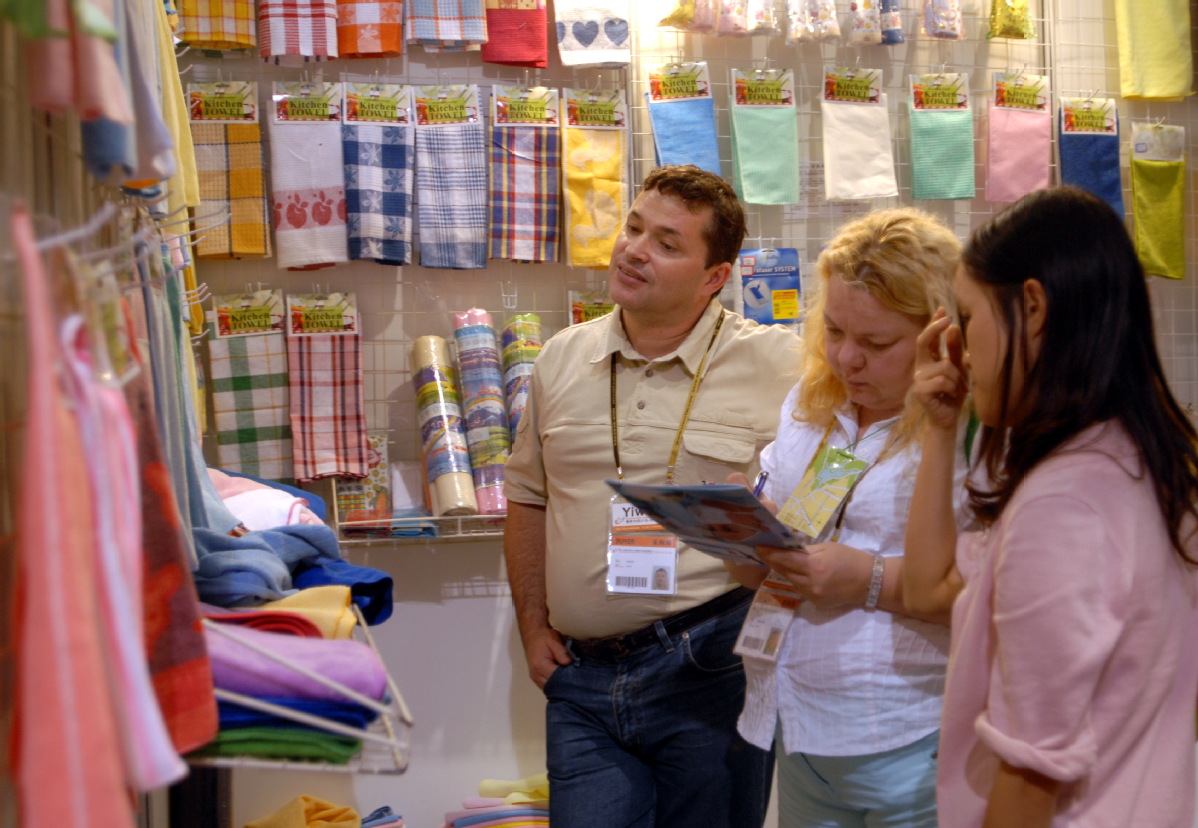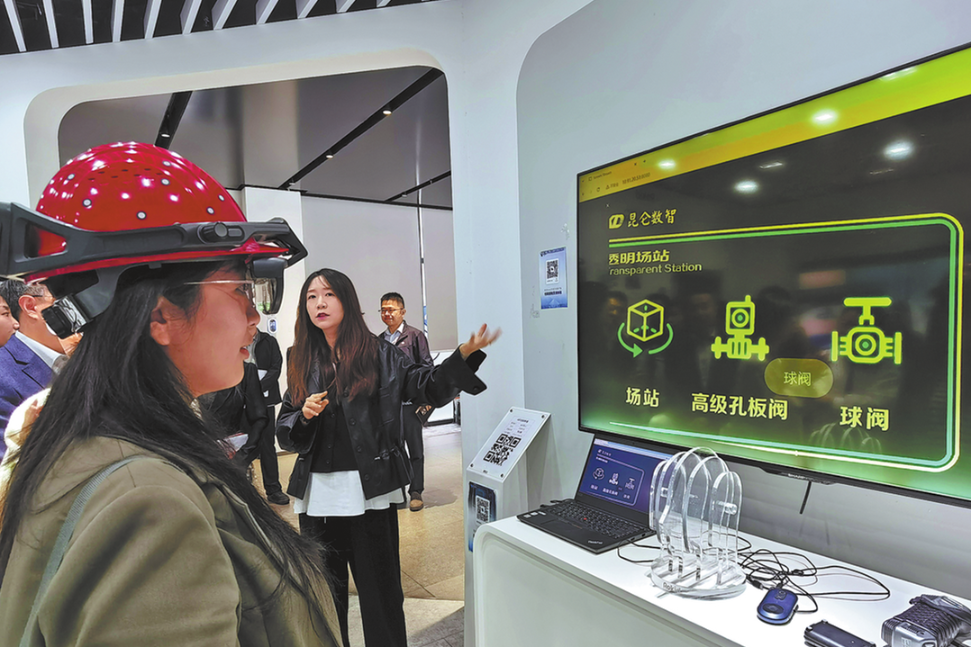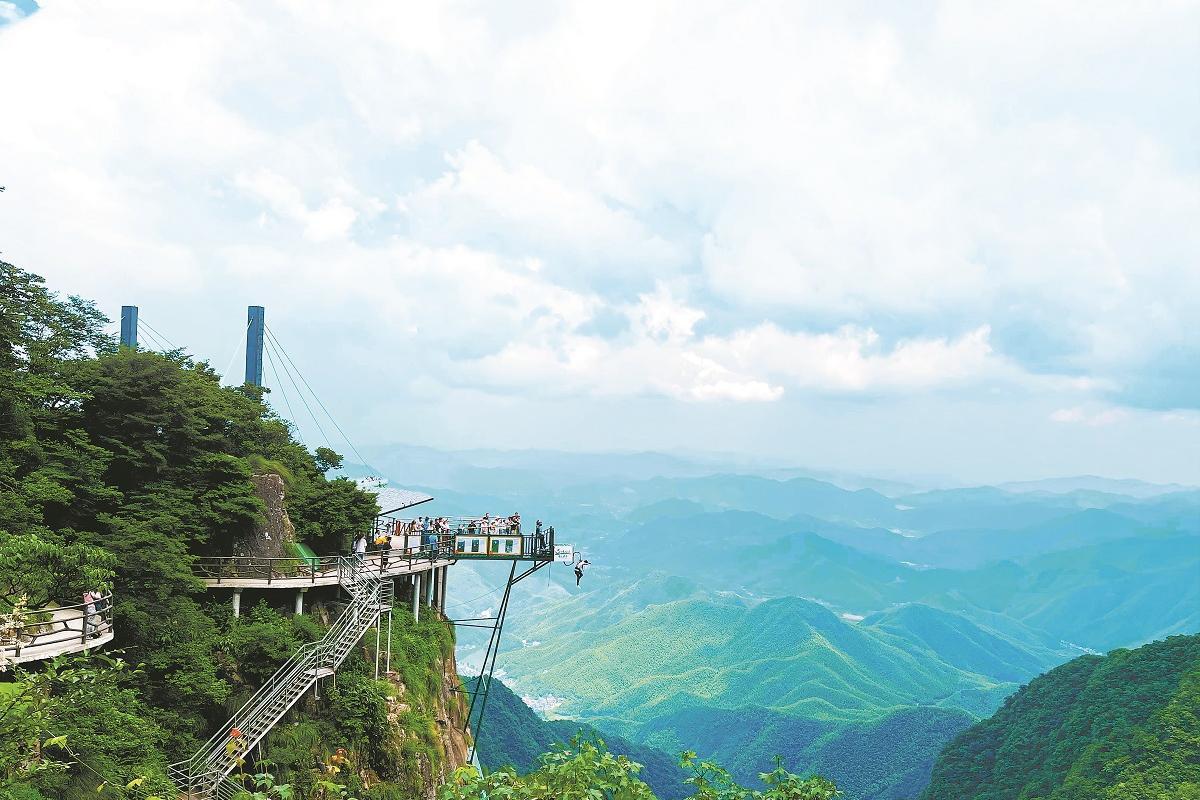Visitors combine business with pleasure in Yiwu, Zhejiang


Yiwu, Zhejiang province, has been dubbed the "world's supermarket" because of the record number of international visitors going there on "procurement-style" tours, fueled by visa reforms, tax refunds and the city's unique wholesale-retail blend.
From January to July, Yiwu welcomed 353,000 foreign visitors — a 19.4 percent year-on-year surge — with leisure travelers now exceeding 40 percent of arrivals. Flight bookings to the city skyrocketed 260 percent on platforms such as Qunar, underscoring its meteoric rise as a tourism hot spot.
"This figure only includes air arrivals," said Wu Hao, deputy director of the inspection department of the Yiwu Exit-Entry Frontier Inspection Station. "The actual number is significantly higher, considering the fact that foreign tourists also come via high-speed rail from Shanghai and Hangzhou."
International diversity is a key feature of the foreign visitors to Yiwu: Spaniards, Australians, Jordanians, Americans and others from all over the world are drawn by Yiwu's dizzying array of affordable goods.
Procurement-style tourism strategically incorporates wholesale shopping into leisure itineraries. In Yiwu International Trade City's toy section, Bishu, a Nepali tourist, crammed two large bags of plush toys into his suitcase last week.
"One bag for my daughter, the other for my son — all at just one-third the price in Kathmandu," he said. He stopped in Shanghai on this trip before his Yiwu shopping finale.
This model under which tourists prioritize bulk purchases of affordable goods for personal use has gone viral among foreigners. Since early this year, numerous travelers entering China via Shanghai, Guangzhou and other hubs include Yiwu on their itineraries to acquire discounted merchandise — blending sightseeing with strategic shopping.
Meanwhile, the conventional "business-tourism" model is favored by purchasers like Sardor, a fabric buyer from Uzbekistan who benefited from eased visa rules.
"After the mutual visa exemption between China and my country, trips to Yiwu became effortless," Sardor said. "I combine factory visits with cultural exploration and often finalize deals between sightseeing stops."
This hybrid approach, which is gaining traction globally among entrepreneurs now represents a new segment of the city's thriving tourism economy.
The tourism boom is fueled by significant policy upgrades and visitor-centered services. The extension of China's transit visa waiver from 72 hours to 240 hours (10 days) and explicitly including Yiwu Airport has been transformative.
"This policy effectively integrates Yiwu into the global transit network," said Li Huanhuan, chief of the foreign affairs section of the exit and entry division of the Jinhua public security bureau. The streamlined process helps many visitors by allowing time for a full itinerary that combines serious shopping with sightseeing.
Moreover, a suite of services further enhances the experience: tax refund points, universal acceptance of Alipay, WeChat Pay and Visa with bilingual signs and merchants embracing retail sales with forcing minimum orders. Supportive infrastructure includes diverse international dining, readily available phone SIM cards, and multilingual service points with language training for vendors.
In addition, diverse dining options, such as the Bedi Restaurant, where hourlong lines of patrons form nightly for authentic regional dishes that cater to customers from across the globe.
Yiwu's favorable reputation among foreign visitors is radiating profound benefits to nearby regions, amplifying their cultural impact and economic significance. Visitors now routinely extend trips from the city's markets to destinations like Hengdian World Studios, where the souvenir shops have followed Yiwu's tax refund policy. Cultural sites across Jinhua, from ancient towns to the Jinhua Mountain, now attract tourists from Australia, Germany and Turkmenistan, who praise bilingual signage while exploring crafts and history.
"Yiwu's booming international tourism proves that even small cities can secure a place in the international tourism market through policy innovation and service upgrades," said Han Yu, deputy director of the office of the Zhejiang department of culture and tourism.
























